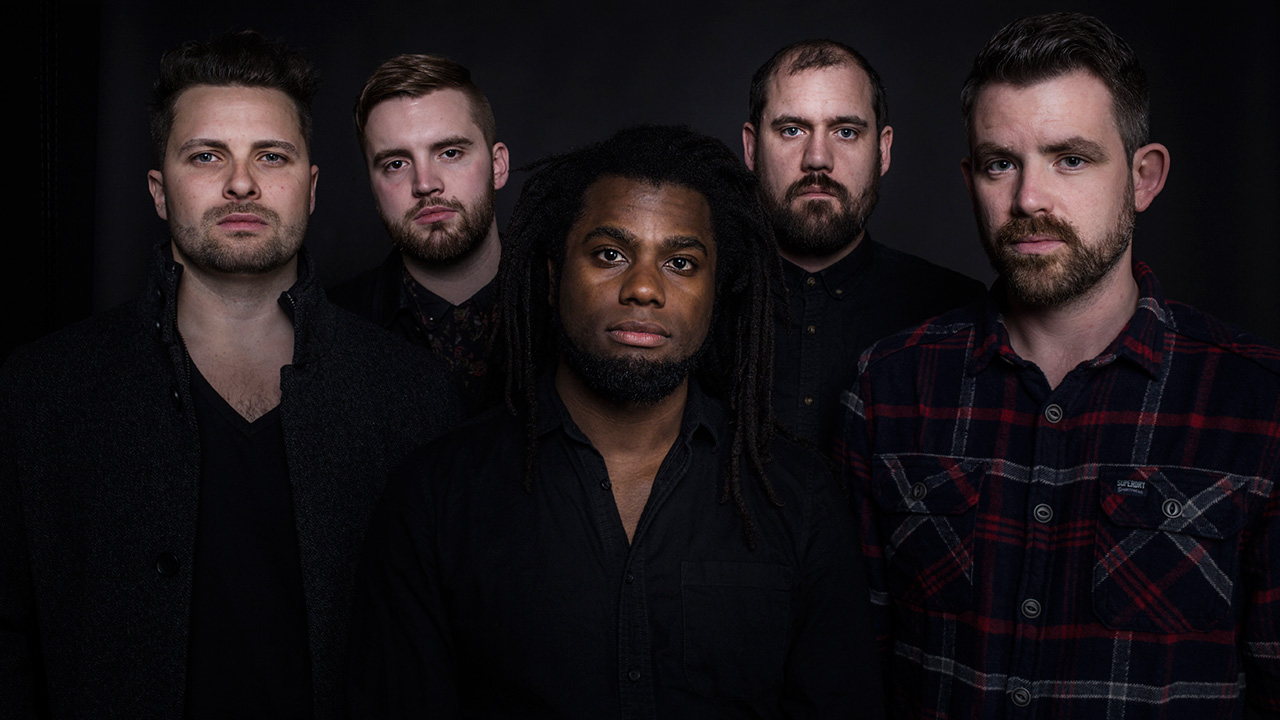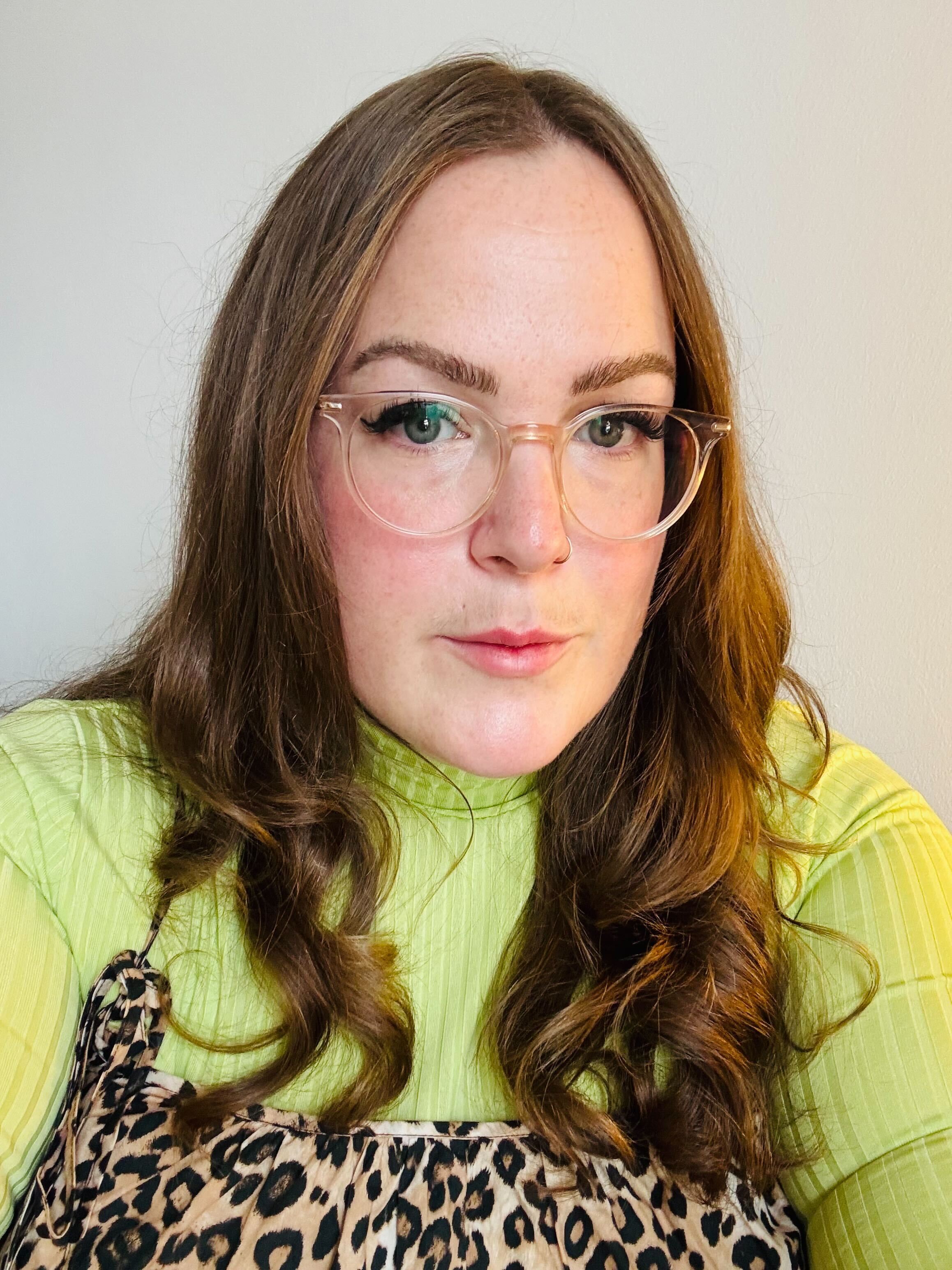Picture the scene: you're young. You've managed to pull together a band. You've just recorded a single you quite like and tentatively unleashed it onto the world. Perhaps, in your most fanciful daydreams, you might let yourself imagine that within hours its release would spark an instant deluge of calls from label bosses and interested parties. But never for a second would you let yourself believe it could become your reality.
For UK alt-rockers Emp!re, it very quickly did. When they released their debut single Black Hearts in 2012, it was met with a flurry of interest as industry insiders jostled bring the band into their ranks. They were ferried between festival stages and awarded coveted support slots. But as the hype around the band reached fever pitch, the five-piece soon realised life in the music biz wasn't all it was cracked up to be. All the empty promises and unrealised opportunities – or "all the bullshit", as they succinctly put it – dwindled and eventually lead to nothing. The band realised that to really follow their own vision, they were going to have to retreat from the industry and go it alone.
Here, the band join us to discuss the murkier side of the industry, how to survive a false start and coming back to make it on their own terms.

Let’s set the scene: six years ago, where were you at as a band?
"We were kind of assembling the members, looking towards different ideas and different avenues. It was a melting pot of crazy ideas. We didn't really have any cares at that time other than making some music, maybe playing a few shows. Some of us were more new to each other than others, so we were finding out how our personalities worked together, what made us all tick."
Interest mounted very quickly in your band. Can you describe the process of how that all happened?
"Well, we went and recorded eight songs with our producer, Chris Coulter. At that time, we had no expectations. We dropped a single called Black Hearts – we liked the song, we thought it was good, but we didn't know if anyone would hear it. But the same day, it just all went mental. I think we had every major booking agent contact us, a load of different managers, some labels – both UK and international – and everything in-between. It felt crazy. I remember getting emails from people I had heard about (like the unicorns of the industry) saying, 'I heard your song, it's incredible'.
"Off the back of that single, we started getting more attention, more gig offers and more contact from the 'industry'. I found it all a bit uncomfortable. We had to try and navigate through it all without any real understanding of what we should be telling some of these people. We released a few more singles and subsequently the mini-album and the attention continued: gig offers, radio play, online, print coverage and everything in-between."
What was it like when the music industry started to really take an interest?
"It felt kind of odd. I don't think that we understood what we should be saying to these people. We didn't have management or any of that shit, it was just from what we knew ourselves – and truth be told, that wasn't much. I felt like we were blaggers and someone else's party. The problem was that because everyone kind wanted a piece, but no one from the industry could do anything but talk in riddles, we couldn't really understand what they wanted, if anything and how it could actually help us."
What are some of the more positive memories you have of that time?
"The shows. Among all the bullshit, what we were most excited about was the gig offers coming in. That made us really appreciate the attention, because we got to go and play far and wide to festival crowds really early in our band's life – that is always the most exciting part to us. All the admin, talking, planning... just give us a decent show, that's where our heads have always been."
Where did it all start to go wrong? What was it that gave you a sense you might be in over your heads?
"I wouldn't say it went wrong necessarily – but you know those biographies you read about some famous artist who said they were rejected 100s of times, etc. Well, we showcased for everyone you can imagine, each of them telling us that we had blown them away, and then holding us off for ages while they were making 'a decision', only to be told they didn't have budget that quarter or whatever. The more it progressed, the more we didn't like the idea of labels, managers and so on. We went through a load of managers as well, which quite frankly was a disaster. I don't know if its us, but we honestly couldn't find anyone who really understood and wasn't just looking to make some fast money or kudos points. So, we were probably in way over our heads, but we also didn't have anyone to really help us with that."
What was the tipping point which made you decide to back away and start again?
"We had to reevaluate everything, because it was all changing. The industry, the bands, the amount of people going to shows. It's no surprise that you are seeing a load of your favourite bands call it a day – it's because it's difficult, and I think a lot of the bullshit doesn't help matters. We had to look at what was important and who we should be working with and how we should be doing things."
A common side-effect of being viewed as a “hype band” is that people can start to doubt the credibility of your band and dismiss you without giving your music a try. Do you think this was true of your band?
"I think the problem with hype bands today is that as an 'industry', there's this desire to look for the next big thing and ride the wave for as long as possible when they're on their way up, so they can build exciting stories and give people something new. Being a 'hype' band brought its own challenges, because as we were waiting to see what labels said or whatever, we didn't focus on what was important: creating music, playing shows and pushing forward ourselves. I don't think our credibility was diminished, we have always had real loyal fans and people engage with our music in such an amazing way, but I think the industry lose interest more. I think the immediate nature dwindles and people move on to what's happening next."
What was the overall impression you took away of how the music industry operates?
"I have met some amazing people in this industry, people who have supported us, some of the amazing promoters out there putting on shows and some really great label A&Rs. But, you know, the whole idea about it being shark-infested waters is very true. We have had success with other interests outside of the music industry with things we have set up and I have never known any industry to be the way the music industry is. It's a very cliche point – but it's a rule to its own and for the people who are assholes, they give the good ones a bad name. That being said, its not easy to make it in a band otherwise everyone would do it. I appreciate the strains of an industry which is in a constant state of change and has constant deadlines to hit. I should have probably listened to Return Of The Jedi by Reuben more..."
How are you guys doing things differently this time around?
"We started working with a label who got it and didn't have any of the bullshit surrounding it. Alex and Stef at Silent Cult were like, 'Yeah man, I want to put out your record,' and so we went and made it and they are helping us get it out there. They aren't the biggest label in the world, but they get it and that's important to us. We had to reflect on how we approach 'industry' and I have just become way more relaxed about. As a band, we aren't going to wait around, we aren't going to pander to what someone thinks we can do/should do. It's very much our own direction and what will come of that we don't know, but at the same time, we don't feel any pressure, which is a nice relief."
How do you think the industry has changed in the last five years?
"We all know the change has been substantial in the last five years, to the point where I think it's unrecognisable. I think the way music is consumed and how people have access to music now has changed the way that it works as a business. I know bands who are selling out 1000 cap venues night after night, and they still have to work some part-time job to even make their rent, and there's something which fundamentally isn't right there. However, labels, management, etc, are taking a bigger piece of the pie, so it becomes chicken and egg – who caves first? As artists, if music isn't created, what does the industry have and where are the next big headliners coming from? I don't know the answers, but I think somehow the model has to shift to realign itself more with how the world is working today."
What advice would you give to young bands starting out now?
"Don't be scared to try something new. I think when we came around, we were different to anything else and that really helped us initially stand out. Also, a label, or a manager, isn't necessarily the best thing – the ways you can get music out there now is easier than ever. I think the world of hip-hop in some degree has shown us the way. Collaborate, be prolific in your releases, throw out music whenever you get the chance. Of course, make sure it's good, but use the platforms available to you and work towards something yourselves, until an opportunity comes along that's really worth your while. Don't get caught up in the bullshit. First and foremost, always enjoy yourselves and look towards success after. If you're doing this, don't expect to earn a load of money, so look at how you can work this around your outside of music life too."
Emp!re's new album, Glue, is available now via Silent Cult.

